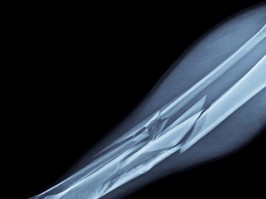for most adults, a vitamin d deficiency is not a huge concern because even if they do not take in enough through their diet, exposure to the sun generally ensures they are still meeting their nutritional needs. for older individuals and people with darker skin, however, supplements may be necessary to ensure they have the proper amount of vitamin d at their disposal.
symptoms of a vitamin d deficiency
a vitamin d deficiency can be difficult to detect because it can take months or years for the first signs of an issue to appear. in the rare instances it occurs in small children, a severe vitamin d deficiency
can lead to rickets, a condition that causes incorrect growth patterns, bone pain, muscle weakness and deformities in joints.
according to healthline, when a deficiency occurs in adults, symptoms can include:
- frequent illness or infections
- fatigue
- bone and back pain
- impaired wound healing
- depression
- bone or hair loss
- muscle pain
- weight gain
- anxiety
- mood changes, including depression
diagnosing a vitamin d deficiency
there are two simple blood tests that can determine if a patient’s vitamin d levels are low, with the most common being the 25-hydroxyvitamin d. there are also home tests available but patients will likely find their results easier to understand if the procedure is performed and explained by a healthcare professional.
 3 minute read
3 minute read









